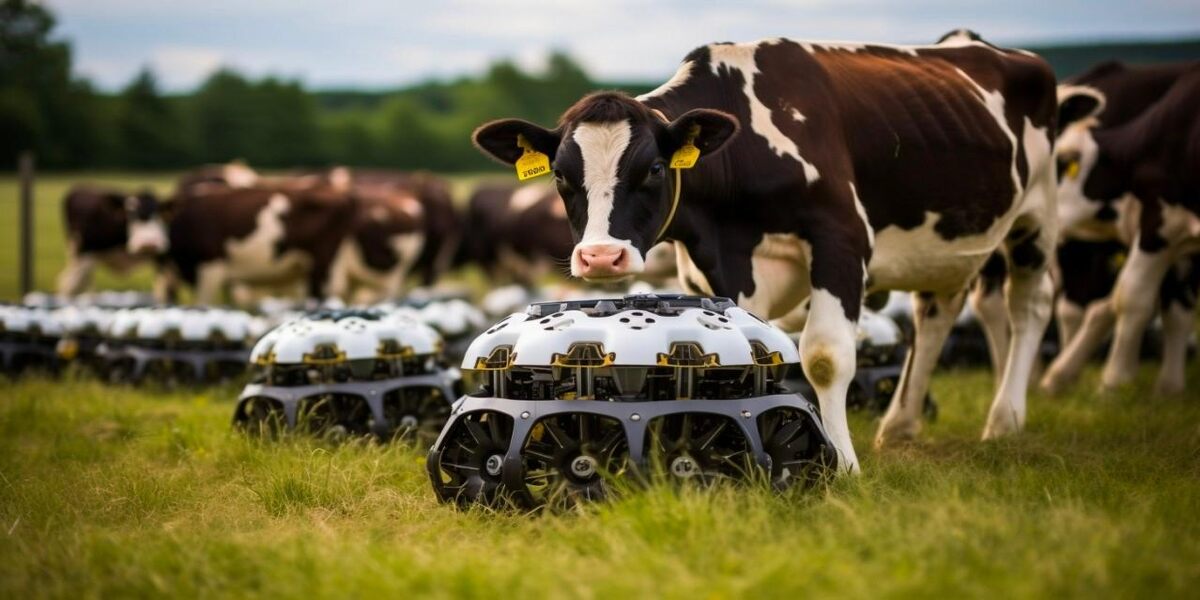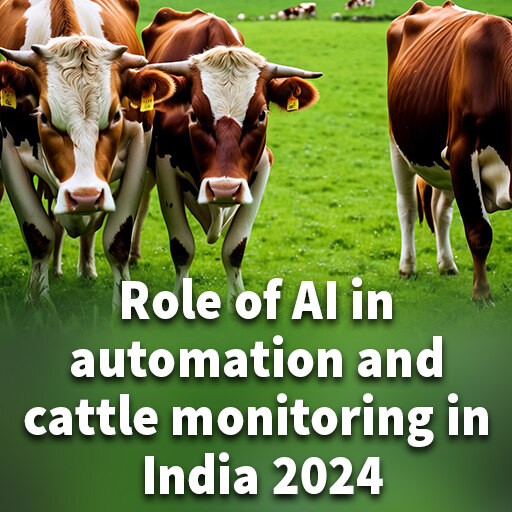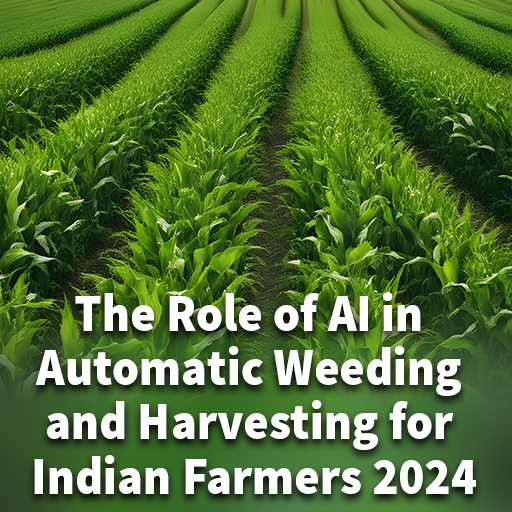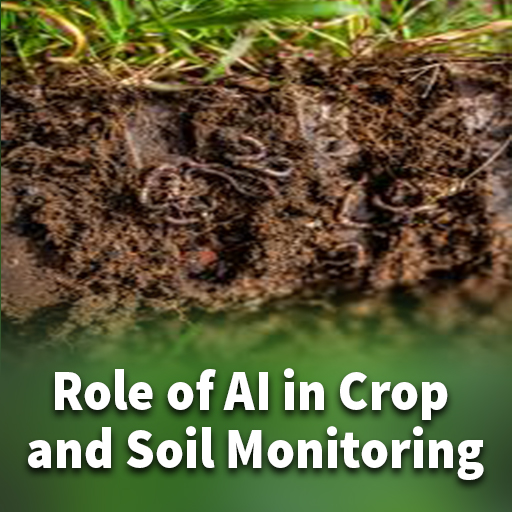Introduction:
Dairy farming is essential in the heart of India’s agricultural landscape where it plays a vital role in providing basic resources. Technology has changed everything, and AI (Artificial Intelligence) in particular is pivotal to revolutionizing dairy farm operations and cattle monitoring. This comprehensive article looks at various applications, advantages, and potential challenges of using Artificial Intelligence in Indian dairy industry.
(Role of AI in Automation and Cattle Monitoring in India 2024)

Credit: istockphoto.com
The Current State of Dairy Farming in India:
Modern agriculture complexity leads us to 2024 when demand for dairy products rises, efficient resource management becomes critical and optimization of bovines’ health matters. With its enormous data processing capability that provides insights for action taking, artificial intelligence offers an opportunity to improve efficiency as well as sustainability of all dairy farming activities.
Applications of Artificial Intelligence in Dairy Farm Automation:
- Automated Milking Systems: Use of sensors and smart technology allows automated milking systems from AI. Cows are identified, milked and monitored for health indicators without human interference.
- Feed Management and Optimisation: Artificial intelligence empowered smart feeding systems analyze each cow’s nutrition demand. By doing this, the technology makes sure that every livestock gets a diet that is their own, which in turn boosts milk production as well as maintaining the health of the whole herd.
- Health Monitoring and Disease Prediction: Artificial intelligence equipped wearable sensors and monitoring devices perpetually follow cattle’s vital signs and behaviors. Hence, real-time data analysis enables early detection of any health conditions and prediction of possible diseases hence allowing for timely intervention.
Benefits of Artificial Intelligence in Dairy Farm Automation:
- Increased Milk Production: Automated milking systems, optimized feeding and reproductive management contribute to increased milk production. Artificial Intelligence then fine tunes all aspects of dairy farm operation to achieve maximum efficiency.
- Resource Efficiency: Smart services driven by Artificial Intelligence optimizes resource use such as feed and water. This not only reduces operational costs but also enhances the sustainability of dairy farming practices.
- Improved Animal Welfare: Automation run by artificial intelligence ensures cows are free from stress during milking processes. Personalized feeding schedules alongside timely medical interventions help improve overall animal wellness.
- Early Disease Detection: The early detection of diseases is made possible through Artificial Intelligence-driven health monitoring. Timely intervention that is based on predictive analytics ensures potential health glitches are resolved before they become worse.
Applications of Artificial Intelligence in Cattle Monitoring:
- Behavioural Analytics: Artificial intelligence studies the behavior of cows to detect when they are ill or agitated. This information enables farmers to make educated decisions about individual and herd management.
- GPS Tracking for Grazing Management: Cattle that have GPS enabled collars or tags give location data for better grazing management. Grazing schedules can be created from such data with Artificial Intelligence which prevent overgrazing and guarantee adequate nutrition.
- Milk Quality Monitoring: Milk quality parameters are monitored and analyzed by use of artificial intelligence. An example is when there is a disturbance in milk composition, only high quality milk goes into supply chain.

Credit: linkedin.com
- Environmental Monitoring: Sensors and devices that are regulated under artificial intelligence checks environmental conditions around cow housing areas like temperature, humidity and ventilation to create a conducive environment for the animals.
Benefits of Artificial Intelligence in Cattle Monitoring:
- Enhanced Productivity: Behavioural analytics and GPS tracking contribute to enhanced productivity by enabling farmers to make data- driven decisions about cattle management. This includes optimising grazing patterns, identifying potential health issues, and improving overall herd performance.
- Precision Grazing and Feeding: This is because artificial intelligence (AI) powered cattle monitoring enhances grazing and feeding practices, it ensures that these are done with more precision. This leads to improved health status and welfare of the animals but in addition, it is good for sustainable land management.
- Disease Prevention and Management: Efficient disease prevention and management can be achieved through early identification of changes in behaviour as well as indicators of ill health. The use of the AI system allows farmers to get actionable information to mitigate effects of diseases on cattle and overall herd population.
- Environmental Sustainability: AI-based environmental monitoring promotes sustainable farming. By ensuring optimum conditions for livestock, dairy farmers can minimize the ecological footprint from their operations.
Challenges and Considerations:
- Technological Adoption: To make Artificial Intelligence technologies widely used on dairy farming, issues such as technological knowledge and accessibility to improved systems must be dealt with.
- Data Security and Privacy: Collecting a great amount of data on cattle health and farm operations brings about concerns concerning data security and privacy. Robust protocols and regulations need to be established so as to safeguard farmer and livestock data.
- Costs and Return on Investment: Although there are clear benefits of deploying AI in the field of dairy farming, this move is not without its challenges especially when it comes to the start-up costs. This concern can be addressed by ensuring that farmers recoup their investment tax-wise and also exploring subsidy programs.
- Integration with Traditional Practices: The integration of Artificial Intelligence-driven technologies with traditional dairy farming practices may necessitate adjustment and training. Smooth transition can be achieved through educational programmes as well as support mechanisms.
Conclusion:
As a transformative force in the Indian dairy farming sector, Artificial Intelligence provides unmatched prospects for automation plus cattle monitoring. It enhances productivity, resource efficiency and sustainable practices ranging from optimizing milking processes up to ensuring individual animal welfare. While challenges exist, the potential benefits underscore the importance of continued research, investment, and collaborative efforts in bringing AI-powered dairy farming to the forefront.
FAQs for Role of AI in Automation and Cattle Monitoring in India 2024
Frequently Asked Questions (FAQs):
How does Artificial Intelligence contribute to automated milking systems in Indian dairy farms?
Artificial Intelligence enables automated robotic milking by creating sensors that monitor and control milking process through smart technology. With this robot technology used during the milking process, cows are identified, health indicators monitored and milked without human involvement.
How does Artificial Intelligence monitor cattle behaviourl, and what insights can farmers gain from this data?
Cattle’s behavior patterns could be analysed using Artificial Intelligence which helps to recognize any deviations that may suggest suffering or sickness. Such data would be useful to individual farm managers as well as herdsmen who choose upon how they can improve productivity while also safeguarding animal interest.
Can small-scale dairy farmers benefit from adopting Artificial Intelligence in their operations, and are there specific considerations for their implementation?
Even small-scale dairy farmers can draw benefits from the adoption of AI. Nevertheless, an accessible technology, training, and costs should also be taken into account. For instance, affordable AI solutions and training programs might contribute to the development and implementation of these technologies on a smaller scale.












